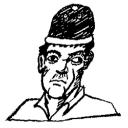Yahoo Answers is shutting down on May 4th, 2021 (Eastern Time) and beginning April 20th, 2021 (Eastern Time) the Yahoo Answers website will be in read-only mode. There will be no changes to other Yahoo properties or services, or your Yahoo account. You can find more information about the Yahoo Answers shutdown and how to download your data on this help page.
Trending News
What are the difference between the "magic-users" often found/mentioned in stories and legends?
I was wondering what were the differences with the following:
-wizard
-warlock
-sorcerer
-druid
If any one knows a site that could provide some insights on the different magic they use, it would be great!
...er, is Merlin a wizard or sorcerer??? :)
5 Answers
- Morningstar2651Lv 41 decade agoFavorite Answer
Wizard
c.1440, "philosopher, sage," from M.E. wys "wise" (see wise (adj.)) + -ard. Cf. Lith. zynyste "magic," zynys "sorcerer," zyne "witch," all from zinoti "to know." The ground sense is perhaps "to know the future." The meaning "one with magical power" did not emerge distinctly until c.1550, the distinction between philosophy and magic being blurred in the Middle Ages. As a slang word meaning "excellent" it is recorded from 1922.
Warlock
O.E. wærloga "traitor, liar, enemy," from wær "faith, a compact" (cf. O.H.G. wara "truth," O.N. varar "solemn promise, vow;" see very; cf. also Varangian) + agent noun related to leogan "to lie" (see lie (v.1)). Original primary sense seems to have been "oath-breaker;" given special application to the devil (c.1000), but also used of giants and cannibals. Meaning "one in league with the devil" is recorded from c.1300. Ending in -ck and meaning "male equivalent of witch" (1568) are from Scottish.
Sorcerer
c.1300, from O.Fr. sorcerie, from sorcier "sorcerer," from V.L. *sortiarius, lit. "one who influences, fate, fortune," from L. sors (gen. sortis) "lot, fate, fortune" (see sort). Sorceress (c.1384) is attested much earlier than sorcerer (1526).
Druid
1509, from O.Fr. druide, from L. Druidae (pl.), from Gaulish Druides, from O.Celt. *derwijes, representing O.Celt. derwos "true" and *dru- "tree" (especially oak) + *wid- "to know" (cf. vision). Hence, lit., perhaps, "they who know the oak." O.E., too, had the same word for "tree" and "truth" (treow). The Eng. form comes via L., not immediately from Celtic. The O.Ir. form was drui (dat. and acc. druid; pl. druad); Mod.Ir. and Gael. draoi, gen. druadh "magician, sorcerer." Not to be confused with United Ancient Order of Druids, secret benefit society founded in London 1781.
Merlin could be considered both wizard and sorcerer.
Source(s): http://www.etymonline.com/ - jplatt39Lv 71 decade ago
I remember going to hear Chinua Achebe speak as a fundraiser for the Biafran war (1967-70). This was late in the conflict and he had become an electrifying speaker. One thing he said has stuck in my mind: "The myths which we have today are DANGEROUS myths." (he should know).
These days the use of a word is more important than the word used. Even characters: Nimue/Vivien is quite different depending when she is depicted by Alfred Lord Tennyson, Marilyn Hacker, Mary Stewart or Marion Zimmer Bradley. Wizard is used by Alan Garner to describe characters which partake equally of the New Age and early legend, Tolkien as Christian Avatars, and Rowling as stand-ins for the Bourgeoisie who nevertheless are true to the legends of witchcraft.
I have immense respect for neo-pagan religions but other than that the use of any of those words in modern contexts tends to be so original I can't take them seriously.
Merlin, properly, is not a warlock (which in part is a germanic concept anyhow) but he can be described as wizard, sorceror or druid, depending on the context, and he sometimes is properly, and sometimes improperly.
- Anonymous1 decade ago
if you want the fictional deffintions of these it would be like this
Wizard- someone that uses magic through use of prepared spells and hours of study.
Sorcerer- has an instinctive ability to control magic and does not need prepared spells.
Warlock- similar to soccerers expect that they tend to have some sort of magical being that either posses them or lets them tap into their magic.
Druid- uses magic drawing on inner energy and the power of the natural world and elements.
the historical Merlyn was a druid. in most stories he is called a wizard but recently he has been reffered to as a druid.
- ?Lv 61 decade ago
Warlock is an oath breaker, therefore it wouldn't be a compliment. Druid were the priest-healers of the Celts.
- How do you think about the answers? You can sign in to vote the answer.
- 1 decade ago
WIZARD----someone who is more skilled and veteran than a magician and has more experience
WARLOCK----a female wizard or sometimes labeled as a witch
SORCERER-who uses magic to offend people,hurt and kill...they're commonly known of using witchcraft and magic linked to demons
DRUID---also like a sorcerer but i dunno what exactly is their objective
NECROMANCER--with magic skills to enable them to control corpses or dead bodies and use them for various purposes,they're just like ventriloquists but uses magic for control and dead bodies as puppets
FAUST---some persons who use alchemy to achieve immortality through invention of elixhir but failed due to pride and arrogance which led them to doom and evil deeds
DIVINER---same with sorcerer but focuses more on spirit calling and channeling and ritual chanting,massive usage of ouija boards and star-like wood which has a hole in the middle
CHARMER---similar to warlock but uses magic to attract some people especially the opposite sex,magic which is used mainly on attraction not to kill
STREET MAGICIANS----such as Criss Angel,David Blaine and David Copperfield whose main objectives are for entertainment,fame,money and for happiness of people who loves to see magic,includes usage of cards and various props such as a sweet sportscar
ELEMENTALISTS---uses the main elements of earth such as water,wind,land and fire.
and Merlin is a wizard





